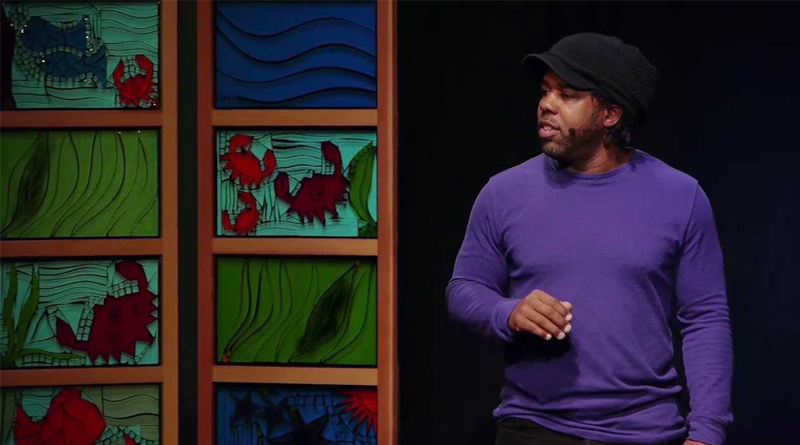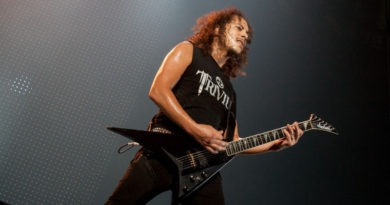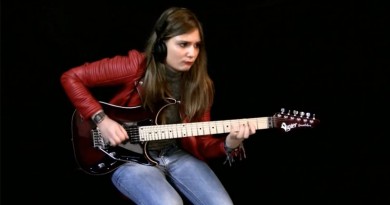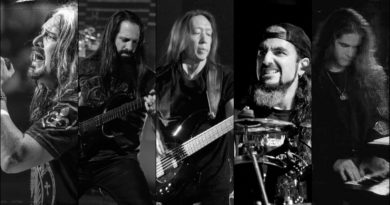TED Talks Every Musician Should Watch (Part 2)
Last week, we started with a series called TED Talks a Musician Must watch. (You can read part 1 here.) TED Talks are one of the best way to help you come out of the rut and offer innovative ways to approach a thing. Continuing from where we had left off, we bring you the second installment in the series of TED Talks a musician must watch.
The Value of Music Education: Richard Gill
Richard Gill is an Australian conductor. He conducts choral, orchestral and operatic works, and he is a music educator as well. In this talk, he reasons why music education should start with young children. He also explains the importance of singing, because through singing is how children can be taught to be literate, to read, write and analyze. Through music we open children’s minds in special ways different from dance, visual arts, drama. The power of creative force transferred from music to all other areas of learning is hugely potent.
“When the music imagination is ignited in a group circumstance, we have the most extraordinary power to change lives with music, and to involve people in music.”
How to Read Music: Tim Hansen
“How do you get a guitar player to stop playing? Put sheet music in front of him” Sheet music is a guitarist’s nightmare. In this video, Tom Hansen explains the foundational elements of musical notation and how they interact to create music i.e. staff, beats, rhythm, notes, bars and clefs. With a little bit of time and patience, you can become the next Beethoven or Justin Beiber.
What My Guitar Taught Me about Improving Education: Steve Joordens
Steve Joordens is a Professor of Psychology at University of Toronto Scarborough. After starting the talk by playing Pink Floyd’s Another Brick in the Wall, he argues that the learning process should be changed in some critical ways. The learning is done through the way students interact with information and teachers. If the students don’t feel engaged during the learning process, the motivation to do better slowly fades away. To affirm his views, he shares his experience of building a guitar from scratch and how it helped him find out new ways of learning. The best way to learn anything is to build it and engagement, technology and sharing of information with others can aid the process.
Music as a Language: Victor Wooten
Victor Wooten is a bass player, composer, author and producer. In this talk, he reminds us the experience of learning our first language. When we were born we were not taught how to speak it, but we were just allowed to speak. We had the freedom to speak the way you want without following the rules. We could be a baby and still jamming with professionals. He uses the same analogy to explain how music should be studied. We should think of music as our first language. Students are taught the instrument before they understand music which is counterintuitive.
“When people put you up on a pedestal, don’t come off the pedestal acting like humble, stay there and pull them up.”
Transforming Everyday Objects into Musical Instruments: Bruno Zamborlin
Bruno Zamborlin is a technologist, researcher, musician and designer. He is currently working on new methods for gestural interaction i.e. use Digital Signal Processing to feed the computer specific gestures or patterns and associate them with specific actions. And they have come up with Mogees (A mobile app) that applies these principles to musical domain. So people can design their own instruments by selecting the objects they like and associate the sound of their choice and make music anywhere they want.
The Mad Scientist of Music: Mark Applebaum
Mark Applebaum is an American composer and associate professor of music composition and theory at Stanford University. In this talk, Mark demonstrates some unconventional ways that he has followed to compose music like designing an instrument from found objects or writing pictographic score for The Metaphysics of Notation which is 72 feet wide. In the end, he argues creativity is not about doing something which confines itself to a standard definition, rather the focus should be on making things interesting.
Why You’re Not Getting Laid and Why: Will Henshall
Will Henshall is an artist and an entrepreneur. He is working on focus@will, an online platform that sequences instrumental music to reduce distractions when working, studying and reading. The name of the title is bit of a misnomer, but Will presents some scientific ways to reduce distraction when working or studying. The key takeaway is what you listen to affects your productivity. Check out the video to learn more.
If you have missed our other installments in this series, follow the links below to view them:
TED Talks Every Musician Should Watch (Part 1)
TED Talks Every Musician Should Watch (Part 3)
Hope these videos will inspire you to learn your craft in a better way and get you out of the rut. Did we miss anything? If so, please let us know by sharing it in comments section. Until next time. Cheers!





The Victor Wooten talk was easily the best!
After he gives the cupid bomb analogy and says, “My name is Victor Wooten; I’m a musician, and I hope you will join me on the battlefield.” *Goosebumps*